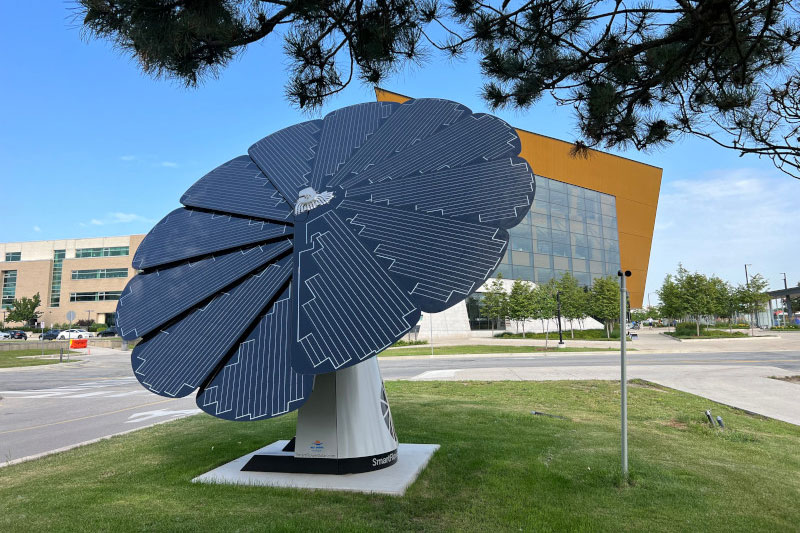
School of Clean Energy
A Global Hub for Clean-Energy Education, Workforce Development, and Applied Innovation.
The transition to clean energy is accelerating worldwide and the world urgently needs a skilled workforce to deliver it. Global electricity demand is rising rapidly, driven by electrification, advanced manufacturing, data centres, and AI. Nations are expanding clean generation, strengthening grids, deploying storage, scaling nuclear power, and digitalizing energy systems.
Canada and Ontario are no exception. Ontario must significantly increase electricity production to power an electrified economy and growing digital infrastructure. This requires talent across generation, transmission, net-zero buildings, smart grids, and energy management.
Humber Polytechnic is building that workforce for Canada and for global partners. Our learners and industry collaborators gain hands-on experience in renewable energy, nuclear and advanced power systems, battery storage, smart-grid and EV infrastructure, building automation, and AI-enabled energy optimization.
On the list of Canada's Greenest Employers for the 10th year in a row, Humber aims to be one of the first Canadian institutions to reach Net-Zero by 2029, setting a new standard for climate action and sustainability leadership.
How Humber Is Advancing the Global Clean-Energy Workforce
Humber builds talent and capacity to accelerate clean-energy adoption in Canada and around the world. We bring Canadian innovation, technical leadership, and applied-learning expertise to domestic learners, industry, and to international partners working to scale their energy workforce and infrastructure.
We partner with industry, governments, utilities, technology providers, and global institutions to:
- Build workforce pipelines for emerging clean-energy sectors
- Train technicians, technologists, engineers, and operators for real-world energy systems
- Support upskilling and reskilling for skilled-trades and transitioning sectors
- Deliver applied research and demonstration projects in live environments
- Establish international training partnerships and capacity-building programs
- Provide flexible, stackable credentials and workforce training solutions
- Share Canadian clean-energy and nuclear excellence globally
Through hands-on learning, applied research, and strategic partnerships, Humber is preparing the workforce that will build and operate tomorrow’s clean-energy systems from renewables and nuclear to smart grids, storage, EV infrastructure, and AI-driven power management.

Core Pillars of Clean-Energy Talent Development
Workforce Development & Skills Pipeline
- Build workforce pipelines for emerging clean-energy sectors
- Train technicians, technologists, engineers & operators for modern energy systems
- Upskilling & reskilling programs for transitioning industries and skilled trades
Applied Innovation & Real-World Infrastructure
- Deliver applied research & demonstration projects in live environments
- Use campus and partner infrastructure (microgrids, labs, net-zero buildings) for training and innovation
- Bridge academia and industry through joint projects
Industry & Government Partnerships
- Collaborate with industry, utilities, governments, and global institutions
- Co-develop curriculum, training models, and workforce solutions
- Align with regulatory, policy, and infrastructure needs (including nuclear, storage, smart grid)
Global Training & Knowledge Exchange
- Create flexible, stackable credentials and training models for global learners and partners
- Export Canadian clean-energy and nuclear expertise worldwide
- Build international training partnerships, knowledge-exchange programmes, and capacity-building
Our Collaborations

Collaborations
For More Information
To learn more about partnership opportunities, international collaboration, applied research, or clean-energy workforce development initiatives, please contact:
Francis Syms, P.Eng